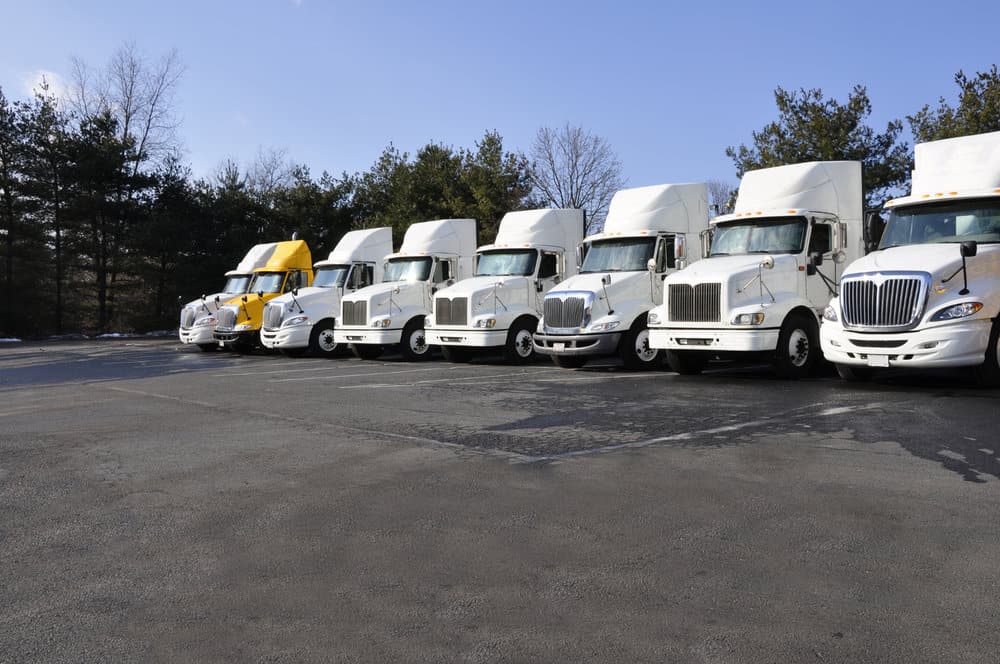
The changes to the tax law for 2018 as a result of Tax Cuts and Job Act of 2017 have led more fleets to consider vehicle leasing, and many of those are smaller fleets and owner-operators who may have only sought out equipment on the used market previously.
James C. Griffin Jr., COO & CTO of Fleet Advantage, said the company has launched new flexible leasing programs in response to the tax changes to help fleets achieve more balance-sheet benefits. Speaking to FreightWaves at the National Private Truck Council’s conference in Cincinnati this week, Griffin said that previously, fleets could deduct only 50% of the depreciation of their new leased vehicle in the first year, but the tax plan now allows them to deduct the full 100% of the vehicle, even if the lease runs for seven years. The change has altered the way fleet CFOs account for their assets.
“We got ahead of the tax changes and have some new lease products that take advantage of the tax changes,” Griffin said. Leases now hit the balance sheet at “net present value,” he said.
This change is important for a company like Fleet Advantage, which has always pitched its leasing programs as total lifecycle management programs. Griffin said there is a clear uptick in maintenance costs in year 4 of a vehicle and a decline in fuel economy. According to Griffin, fleets can save $42,000 total over a 7-year lifecycle in maintenance and repair costs by trading out their vehicle in year 4. That savings is about $17,000 when trading out at 3 years versus a 5-year lifecycle.
Most Fleet Advantage leases are 5- to 7-year leases to account for a fleet’s budget and monthly expenditures on the cost of those vehicles, but all leases include an “exchange” clause that allows fleets to swap out for newer vehicles any time after 3 years. Griffin said most fleets are around 4 years, which is where the costs start to spike, but each fleet is different.
“We know in years 3 to 4 is when you start to see increased maintenance,” he said. “Our model is about lifecycle management.”
The lifecycle management looks at direct costs only, he said, but even with just fuel and maintenance/repair, the case for shorter leases is compelling.
“We reach the point where w can tell the customer it is no longer financially advantageous to drive that older truck,” Griffin said, noting that a new truck produces between 2% and 2 ½% better fuel economy than a prior-year model simply due to age.
In addition to the depreciation aspect of the tax plan, Griffin said the flat 21% tax on corporations has also allowed Fleet Advantage to “do a little more predictable planning for our customers.
“A lot of organizations are looking at this as an opportunity to upgrade their fleets,” he noted. “[And] our model is really starting to resonate, so we’ve seen a huge uptick [in business].”
Fleet Advantage also offers asset management for fleets, including disposal of units, whether that is buying back the vehicles at the end of the lease term or remarketing them on the secondary market on behalf of the fleet in a shared revenue model.
While the company’s model may be resonating, it has also hit at the right time with the tax changes, and that has allowed Fleet Advantage to work with customers to most benefit their bottom line, and that is why Griffin believes Fleet Advantage is positioned to help fleets lower their total cost of ownership.
Stay up-to-date with the latest commentary and insights on FreightTech and the impact to the markets by subscribing.











